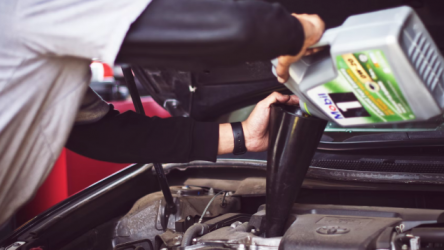
If you want to save money, buying a used car instead of a new one can be a smart move. When you buy a new car, the vehicle depreciates rapidly for the first couple of years. If you buy a used car, you actually benefit from that depreciation and get a better price.
Even so, buying a used car is no easy feat, and finding a reliable vehicle on the resale market can be a real challenge. Here are four ways you can make sure the used car you get is a good deal instead of a lemon.

#1. Review The Reliability Ratings
The reliability ratings and repair frequency reports compiled by Consumer Reports and others can tell you a lot about the vehicles you are considering. While everyone’s experience is different, the fact that these sources compile data from many different car and truck owners make reliability ratings quite valuable.
You can check out the reliability ratings for older vehicles by going to your local library and searching through guidebooks and magazines. You may even be able to find this information online and save yourself a trip. Once you know how reliable a given vehicle is, it will be easier to shop and avoid getting a lemon.
#2. Take Your Mechanic With You
Chances are you are not a trained mechanic, but that does not mean you have to be at the mercy of the car dealer or seller. One of the best ways to protect yourself and avoid getting a lemon is to take your personal mechanic with you for the test drive.
The mechanic can check the car out and spot hidden problems you might have missed. From fluid leaks to engine misses, a skilled mechanic will be able to find all these problems and more. If you are in the market for a used car, check with your mechanic about accompanying you. If that is not possible, as the dealer if you can take the car to the mechanic. Be wary of any seller that will not allow you to get the car or truck checked out.
#3. Check The Vehicle History Report
Even the most attractive used car could be harboring a troubling secret. The only way to truly know the history of the vehicle is to get a full report on what it has been through.
If the vehicle you are considering has been involved in an accident or similarly damaged, the information should show up on the vehicle history report. Be sure to review the report carefully and ask the dealer or individual seller about what it reveals.
#4. Insist On A Warranty
No matter how hard you work to avoid a lemon, there are no guarantees when buying a used vehicle. That is why it is so important to get a warranty when you buy. Be sure to read the warranty details carefully so you know exactly what it does – and does not – cover. Some used car warranties cover only major systems like the engine and transmission, while others are more comprehensive.






